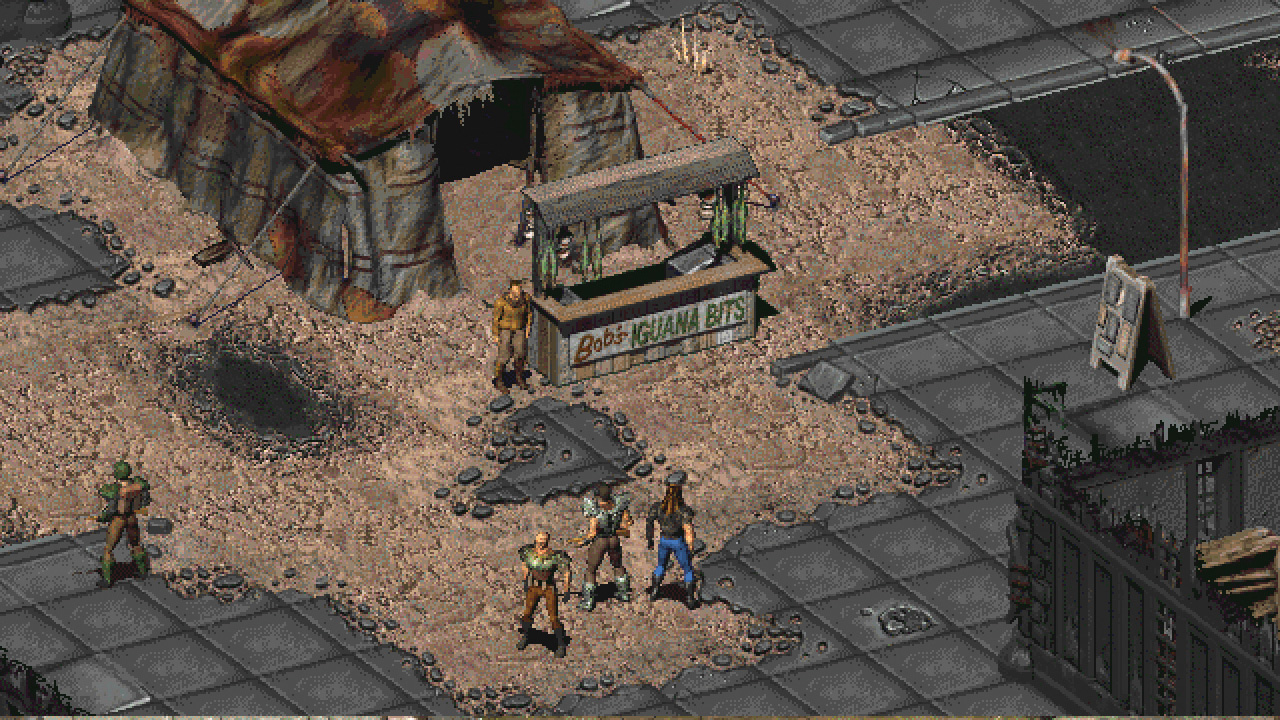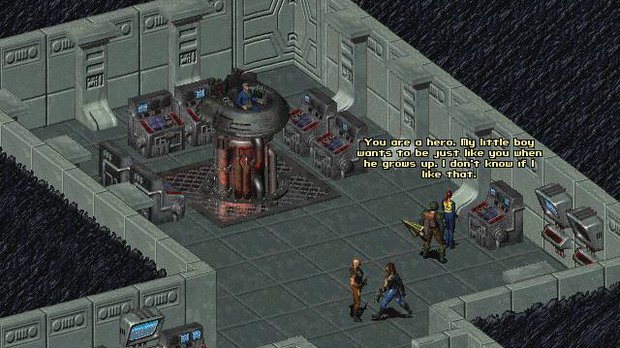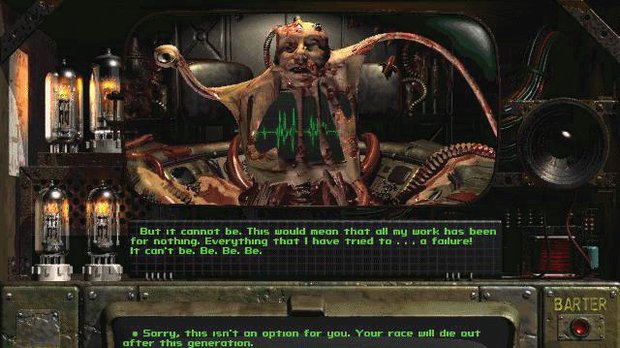Looking back at Fallout's first foray into the wasteland
Funny old species, humans. You couldn’t imagine, say, cows deciding that a brutal vision of the future where their world is a scorched wreck and most of their friends are either dead or horribly mutated like in Fallout would be a lovely place to explore. And that, you see, is why cows make substandard game designers. You’re welcome.

The origins
Two key things fuelled the creation of Interplay’s Fallout, ‘America’s First Choice In Post Nuclear Simulation’: its own spiritual predecessor Wasteland from the ’80s, and unattractively-named tabletop RPG system GURPS.
By now it was the late 1990s, a tired time for PC RPGs. Acres of ground had been lost to all the fancy FPS newcomers bringing guns to a swordfight. But with its unique ’50s propaganda vibe and an unprecedented level of player choice, this helped spark a role-playing resurgence that would grace us with the likes of Baldur’s Gate, Deus Ex, and story-driven sweet thing Planescape: Torment from Black Isle Studios, the developer that sprouted from the core Fallout team.
When the GURPS association fell through before launch, in came the tailor-made SPECIAL system: Strength, Perception, Endurance, Charisma, Intelligence, Agility and Luck, topped up with your à la carte choice of character skills, traits and perks. Then off you went, out of your comfort zone and into a world where the old rules had burned to a crisp when the bombs fell back in 2077.

The legend
You’d probably never have left Vault 13 at all if it wasn’t for the frazzled water purification chip. Without a replacement, the life of those locked below would end in 150 days, brought to a halt by a fault in the Vault. Tick off this mission and things took a turn for the freeform, with the plot obligingly upscaled to feature a nutso tyrant with a mutant army and a scheme to destroy mankind. Again.
It wasn’t just the scenario that was daunting, though. There were a lot of character factors to track – and combat, turn-based and dependent on Action Points, wasn’t always your best option. Negotiation was often a better path, provided it wasn’t with someone too hopelessly irradiated to think straight. Yes, the legacy of the war had left the surface seething with potential nastiness, and every possibility of your Vault Dweller being jumped by Radscorpions, Super Mutants, Ghouls or Deathclaws while trotting across the crusty wasteland from one settlement to another. All part of the bleak, stressful, brilliant brand of fun.

The legacy
After a slow-burning start, Fallout became one of the most revered names in PC RPGs. It ushered in a dark future stomping ground that proved incredibly memorable (for a wheezing, radioactive husk) and continued to sparkle in the transition to 3D.
Weekly digests, tales from the communities you love, and more
Of course, classic Fallout looks a bit scruffy now, and it was never the most forgiving of adventures, so in some ways the series’ growth has thrown a harsh light onto its origins. But this was visionary stuff, opening up avenues for morality or hair-raising immorality, then leaving you to deal with the karmic consequences of lying, betraying or resolving disagreements with people like the old Vault 13 Overseer by, well, murdering them.
Few games have settled on a better balance between grit and fantasy. Its themes were hard-hitting, but all the philosophy came packaged up in retro-future power armour, while for every moral dilemma there was a herd of comedy two-headed cattle around the corner. See, cows? We’re still doing all the tough future-predicting work for you. You lazy sods.
Click here for more excellent GamesMaster articles. Or maybe you want to take advantage of some great offers on magazine subscriptions? You can find them here.



